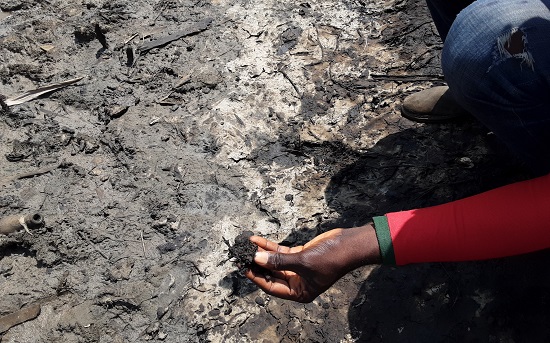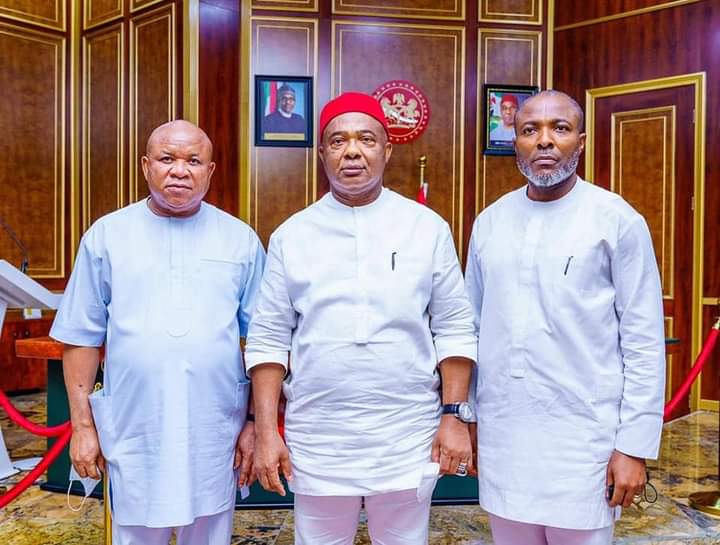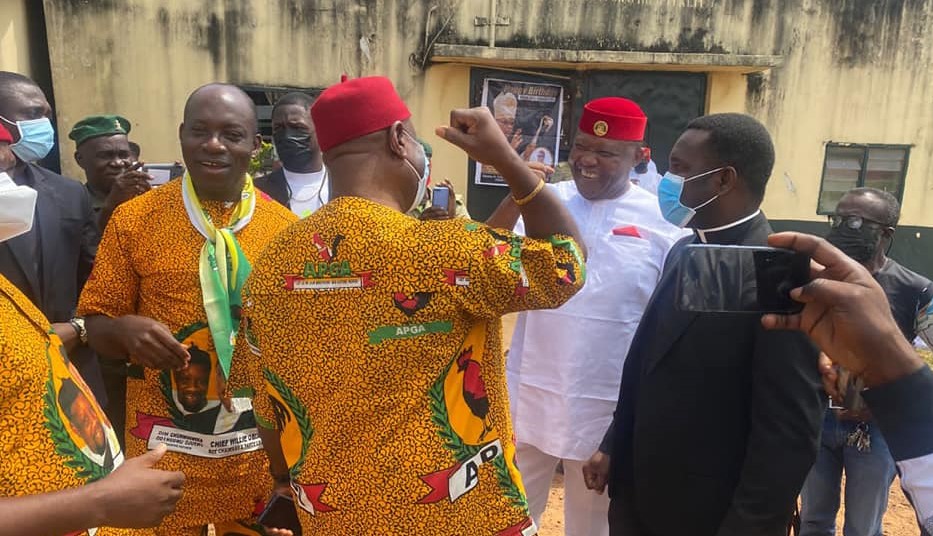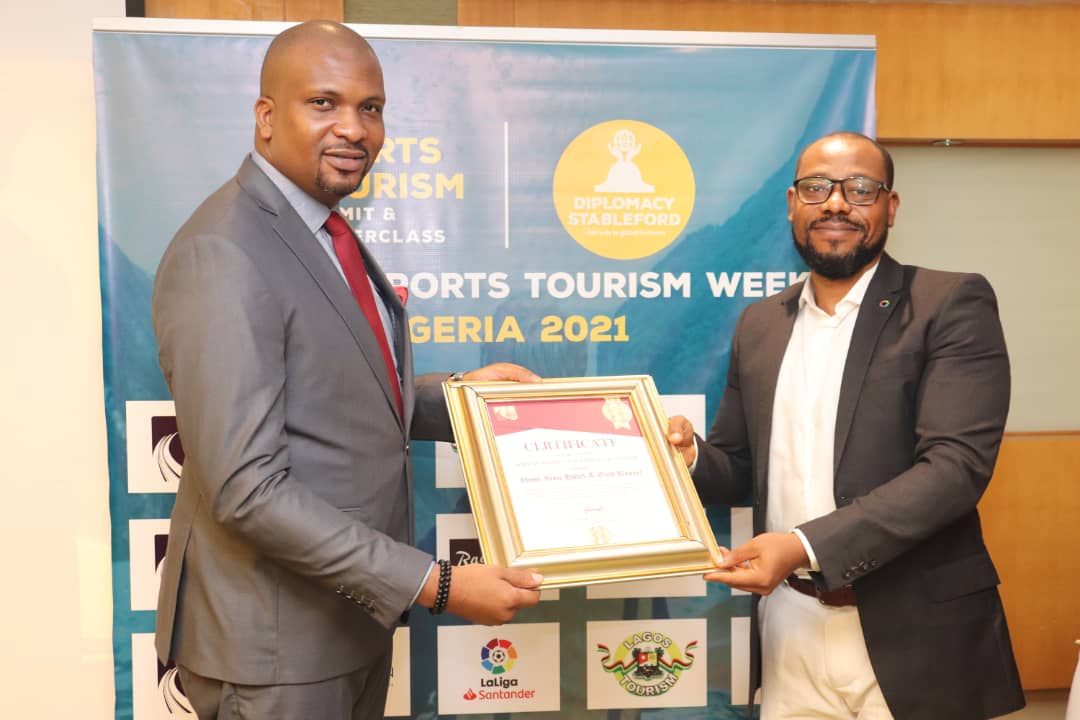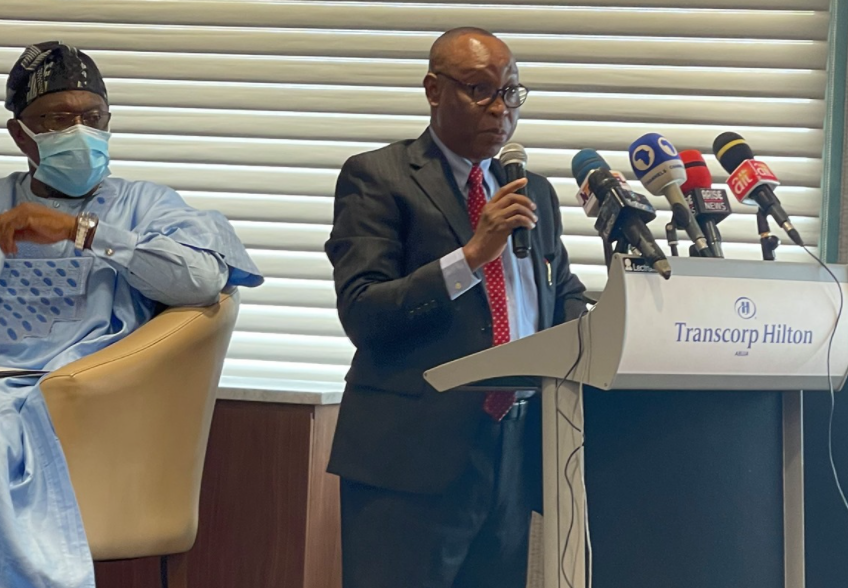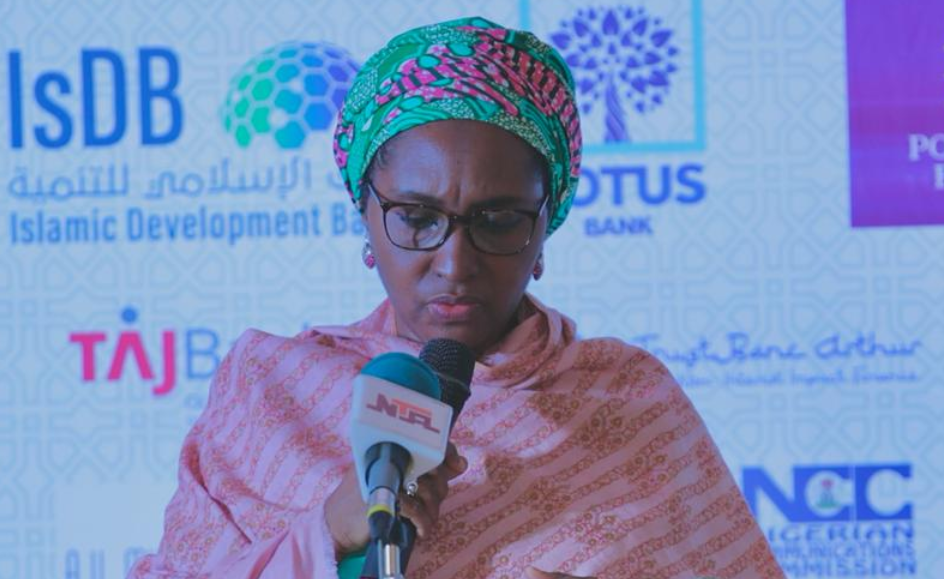A crude laden soil in Gokana
Journalists on the platform of Connect Fund of the Bertha Foundation have asked the federal government to provide basic amenities, especially water and electricity, for oil-producing communities affected by oil spills.
The 2021 Bertha fellows spoke during a two-day training and collaborative learning exchange between Nigerian and Zimbabwean journalists.
The workshop titled ‘Accountability Reporting: Perspectives from Oil-bearing Communities’, offered the three 2021 Bertha fellows the opportunity to share their fellowship activities and experiences with other journalists and activists.
The workshop was put together by Abiose Adelaja, a Nigerian Bertha fellow with TheCable, and two Zimbabwean Bertha fellows — Charles Saki and Lenin Chisaira — in collaboration with TheCable.
Advertisement
Speaking during the workshop, Adelaja narrated her visit to Eleme LGA in Rivers state during the fellowship year and the challenges with regards to unavailability of water and lack of access to electricity for oil-bearing communities.
Adelaja, whose works highlighted the environment degradation in oil-bearing communities, said despite the resources derived from such areas, residents still living in squalor and inhabitable conditions.
She called on the federal government to pay more attention to the plight of oil-bearing communities and ensure that the affected residents get benefits.
Advertisement
“When I visited the community (referring to Eleme LGA), they had no water. When they showed me the water from their well, it was oily,” she said.
“They basically buy water to drink, cook and wash their clothes because they can’t use the oily water. Their living conditions call for urgent attention and the government must do something about it.”
On his part, Saki, the founding editor of Dry & Dirty, an online publication that focuses on environmental issues in Zimbabwe, said African leaders must be held accountable for the sufferings of the people with respect to climate change.
“We need to start talking about this and holding people accountable. Despite having resources in Africa, our lives seem to be difficult,” he said.
Advertisement
“We tend to suffer more when it comes to climate change, while some people enjoy it. Apart from contributing to 60 percent of greenhouse emission, our resources are failing to take care of this problem. It is like a curse.”
Also speaking, Chisaira, an activist and environmental lawyer based in Zimbabwe, said a well-formulated environmental law is necessary to minimise the impact of climate change and the activities of oil-producing companies in Africa.
“We allow anyone to come in and do what he or she likes on our land. We do not conduct in-depth research into the effects and extent of climate change,” he said.
“One of the COP26 themes is uniting the world to tackle climate change. Our unity as Africa is uneasy and is not reflected on the ground.
Advertisement
“It is this lack of true political and economic unity that puts us at a disadvantage. It continues to promote the siphoning of our resources on the proverbial dinner table. For Africa to survive, we need unity.”
The two-day workshop, which was held on November 3 and November 4, was concluded with a field trip to the Dangote refinery in Lagos, where fellows and journalists interacted with members of host communities.
Advertisement
See photos from the workshop below.
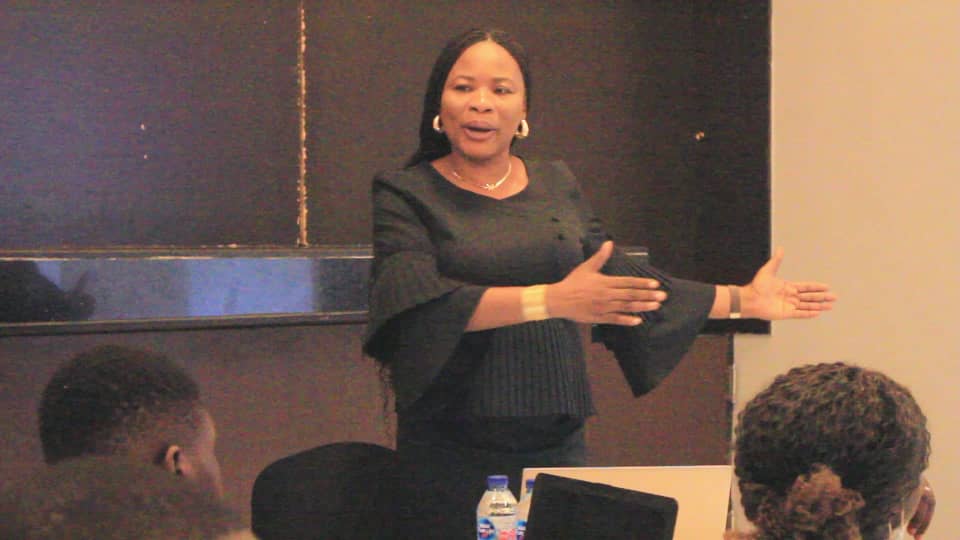
Advertisement
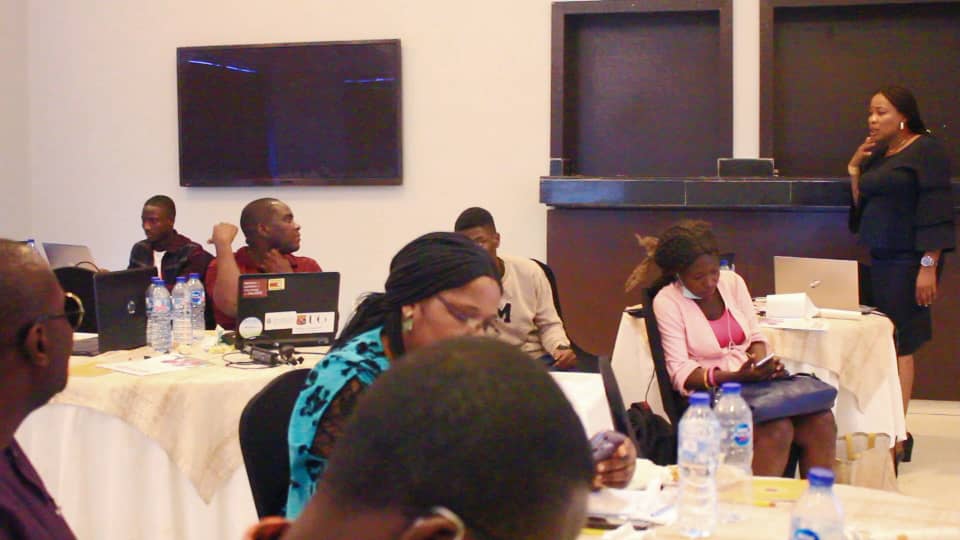
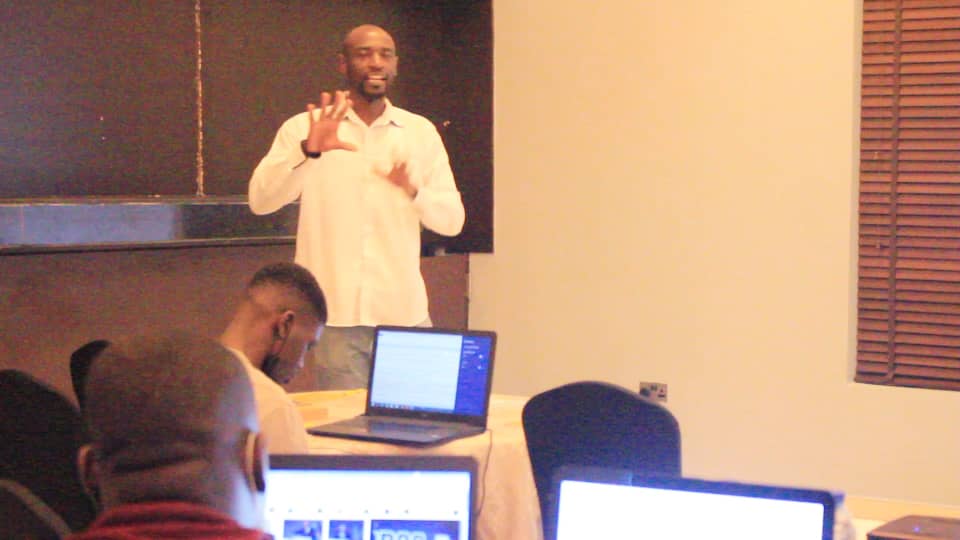
Advertisement
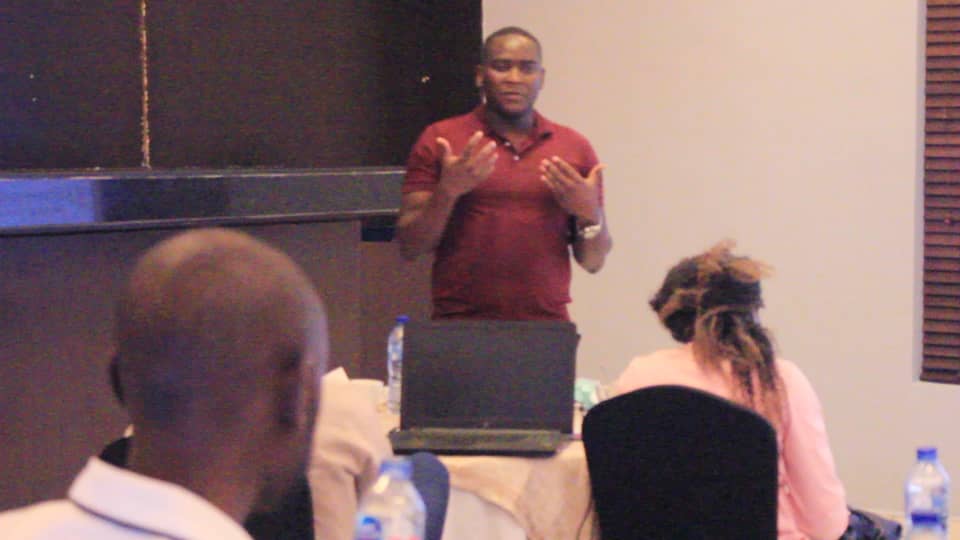
Add a comment
